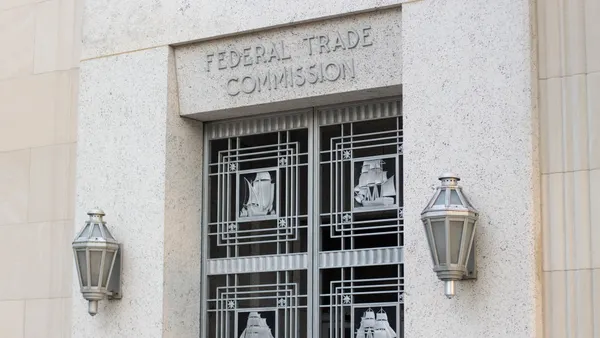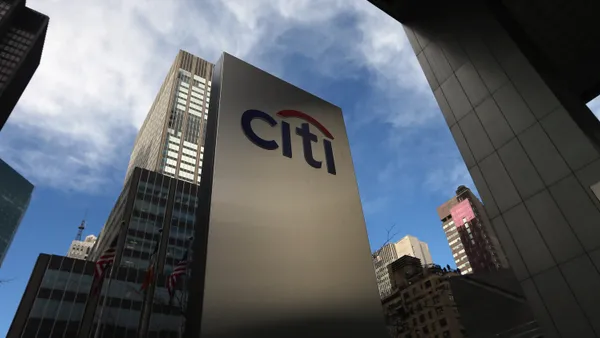Dive Brief:
- Some states — largely Republican-led "red" states — supposedly want to limit the undocumented immigrant population in the U.S. by cracking down on sanctuary cities without enforcing compliance upon the businesses that hire illegal immigrants, the Los Angeles Times reports. These employers have been dubbed "sanctuary businesses" by some Democrats.
- Many states with strict immigration policies use the E-Verify system, which checks individuals' Social Security status to determine their eligibility to work in the U.S. But sources told the Times that states don't regularly and consistently enforce the system, which has allowed many employers to continue hiring workers regardless of their work status.
- Even some Republicans, who largely favor strict immigration policies, agree that there's hypocrisy in immigration reform. JoAnn Flemming, executive director of Grassroots America, a conservative group, told the Times, “[The system is] called ‘sanctuary businesses/industry'. That makes a lot of Republicans mad when you use that term, but the fact of the matter is that there is a strong cheap labor lobby in Texas, and they give a lot of money to candidates and they have a lot of influence.”
Dive Insight:
The situation reflects the seeming paradox occurring at both the national and state levels with respect to labor law regs. Republicans won big in the 2016 election by betting on a platform that emphasized both immigration reform and deregulation of business as key components with which to bolster the economy. But the two ideas contradict one another, and it's not hard for employers to understand why that's the case.
For one, immigrants, regardless of their legal status, shore up both low- and high-skill occupations in many industries — ones that would otherwise be plagued by a shortage of available workers and prerequisite skills. The cost to businesses on that end, in the event of harsher immigration policy at either the federal or state level, would be twofold: ramped up recruiting and training initiatives.
Secondly, there's the issue of compliance. President Donald Trump is on the record having said that making E-Verify, a software used by federal and state contractors, mandatory for all employers is a priority. That obviously adds a compliance burden to a list of regulatory changes that is already becoming lengthy.
And while some Republicans have been reluctant to burden employers with the changes, other reports indicate their colleagues in Congress are open to the idea of mandating E-Verify, as well as streamlining related aspects of compliance (like replacing the current I-9 system with a fully electronic version). HR advocates, including the Society for Human Resource Management (SHRM), have supported efforts that make things simpler and less costly for employers. Still, other experts worry about the negative impact of immigration crackdowns on the workplace.
As with any politicized aspect of compliance, it's a tight rope for HR to walk. In the interim, be sure to keep up to date with Form I-9 requirements and determine whether the use of electronic compliance forms is practical for your organization.













